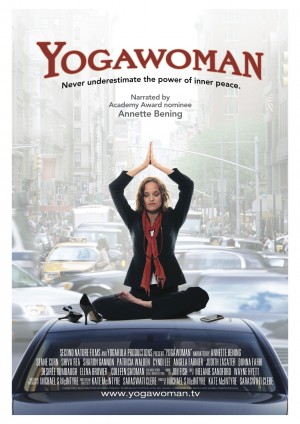|
|
||
|
Pro Tools
FILMFESTIVALS | 24/7 world wide coverageWelcome ! Enjoy the best of both worlds: Film & Festival News, exploring the best of the film festivals community. Launched in 1995, relentlessly connecting films to festivals, documenting and promoting festivals worldwide. Working on an upgrade soon. For collaboration, editorial contributions, or publicity, please send us an email here. User login |
Interview with Film Director, Eran Riklis In “Lemon Tree”/”Etz Lemon”, the strong-willed Palestinian female lead, Salma Zidane, played by Hiam Abbass, from “The Visitor”, faces losing her inherited lemon orchard when an Israeli Defense Minister Navon and his wife, Mira Navon, played by Rona Lipaz-Michael, move next door, and poses a threat to their safety, as it obstructs the secret services’ views. While, in “Syrian Bride” a determined young woman from The Golan Heights contemplates losing her Israeli citizenship and access to seeing her family, by marrying a Syrian television actor, who she fell in love with from watching him on television. -Are they true stories or based on true stories?” Eran Riklis: “Yes, both are actually.” “’Syrian Bride’ was basically based on a documentary I made called “Borders”, which was about the borders of Israel, but from a kind of different perspective, smugglers, all sorts of kind of off beat stories, and one of the stories, is about one of these kind of strange marriages, where once the bride gets married, she crosses the border and never comes back, because she becomes a citizen of an empty state. It was only a seven minute segment within the documentary, but it stuck in my mind. A few months afterwards, I just had to call the families, and say, “listen, I want to come back and talk more”. I met this woman who was more or less like Hiam, early 40’s, and we clicked. I went to The Golan Heights every 2-3 months to study the subject, and that’s how I developed the script. So, it was essentially based on characters that I knew, but, of course, like always, you go in whatever direction you want to go in.” “Then, same with “Lemon Tree”, it was based on a true story. It happened, but it’s also based on a hundred thousand true stories shot in the same kind of style, in essence. people really struggling to defend what’s theirs, from a system that is about to take something away from them." "For me, it’s very satisfactory to know that these stories are based on reality, because nobody can come to me and say, “hey, that’s far fetched, that would never happen, the Israeli’s would never do this.” It’s all based on the truth and reality. As long as I stick to truth and honesty, which I try to, I feel good about what I’m doing.” SA: “Both female leads in “The Lemon Tree”, are undergoing the “empty nest syndrome”, a feeling of loneliness that parents undergo when one or more of their children leave home. Salma’s son and Mira Navon’s daughter, are ironically, both living in Washington, DC. “ “Tell me about the relationships between Salma and Mira.” E.R. “I think they reflect each other, it’s almost like Mira, the Ministers wife, almost needs Salma to go with change in her own life, and it’s almost like Salma derives some courage from this image of this woman behind the fence, even though she’s the enemy, so to speak. She’s kind of this obscure image. She kind of feels some compassion for her. We are talking about two very intelligent women. In theory, in a better world, would probably be good neighbors and have coffee everyday, and be friends. In reality this is a poor Palestinian peasant and the wife of the Defense Minister, and yet it works. That’s why I didn’t want to go into a sentimental mood of showing them talking. Basically, it’s really about the realism of the Middle East, and maybe everywhere, that there’s always a limit of how close you can get to the other side. I think people show an interest, show compassion, but from a judicial sense, there’s always a certain boundry that you will not cross And I think in that sense in “Lemon Tree” and “Syrian Bride” are about psychological and emotional boundaries beyond everything. Physical borders are not that important.” SA: "Salma, played by Hiam Abbass, demonstrates such persistence continuing to fight the Israeli judicial system in an attempt to save what is hers. By fighting authority, and “The Supreme Court”, might she face worse consequences than just losing her lemon orchard?" ER: “Life is so fragile anywhere, you never know you could walk into a coffeeshop in NY and you could be shot. There’s always this kind of fine line. Salma is at a point, and even though she has kids, and she has a life, she begins to feel at a place in her life where her life is over. She has been a widow for 10 years, she knows deep down that nothing is going to materialize with the lawyer, that he is charming, but she knows that it’s not going to work. So I guess she starts the movie with a sense of loss, a sense of I’m going to fight, but I don’t care. Slowly, there is a growing awareness that life is worth living. I certainly think that by the end of the film she is more aware of the risk taking, and probably more protective of her life.” SA: "As an Israeli/Jewish Film Director, have you faced any political obstacles, by surfacing such controversial topics about Syria/Israel, Palestine/Israel to the general public? Any problems working with Israel/Palestinian/ Syrian crews?" ER: “No, not really. I tend to surround myself with good people, and basically, even if it’s people, let’s say in theory, that don’t believe with my political angle of the film, I think they trust my instincts and my honesty, and they respect that. Even if they disagree, they will work gladly on a film that is not trying to twist reality.” SA: " Has the Israeli Government or Arts Council ever tried to censor your work?" ER: "On the contrary, I always get money from the film front. You reach a certain success, and the fact that there’s European money involved. The film front in Israel can not say that this film isn’t worth anything, while the European front are giving money. It’s almost like they have to join in. They do so gladly. It’s about whether it is a good script or not. Despite appearances, and it’s problems, it’s a democratic country. I can not imagine an Israeli coming up to me and saying you should change this or that in the script. It’s my film, if you don’t want to give me the money, don’t give me the money, but it’s my film. Israeli’s are pretty sensitive in that sense. I wish I could be a martyr, but I’m not.” SA. Have you felt any effect from the economic downturn? “Not yet. My traditional sources of finance are European television, European fans. So far luckily, my films have done well in Italy, France, Spain. I have half open door for my next project.” SA: “What have been the biggest rewards? What’s the biggest satisfaction?” ER: “For me, there’s only one reward, which is audience reaction. I try to make good films, which are intelligent and yet accessible. I like films which have a wide audience, and worldwide “The Lemon Tree” has done very well, especially in Italy, France, and Spain.” SA: “Currently you are assisting in Israel again, on Julian Schnabel’s project, “Miral”. Once again, another controversial topic about a Palestinan woman’s attempt to open an orphanage in Jerusalem." Tell us about it! ER: “So far so good. We start shooting next week. It’s tough. I think it’s tough, in a way, it’s an American film from an American Director, coming to a foreign land, trying to tell a local story from an American perspective. It’s like if I was to come to America, I would have to find my way through all the delicacies of local politics. I think Julian is having probably an exhibition in a way, but it’s for a good cause. I think in the end, it’s all about emotions, and forget about politics. I feel it will be a wonderful film.” SA: Tell us about your new project ‘Human Resources Manager” ER: “It starts shooting in November. It’s a human resources manager in a big bakery in Jerusalem who was given the mission of taking back the body of a dead Russian worker, a woman who died in a suicide bomb in Jerusalem and no one claims her body, and he has to take her back to Russia. SA: "Are you staying for “Tribeca Film Festival”? ER: "No, I have to fly back to Israel tomorrow.” 15.04.2009 | One World Cinema's blog Cat. : actor America Business Business Cinema of Israel defense minister Defense Minister , and yet it works Director Entertainment Entertainment Eran Riklis Eran Riklis Family Relation film director Films finance France Golan Heights Hiam Abbass Hiam Abbass Hospitality Hospitality Human Resources Manager Israel Israeli government Italy JÉRUSALEM Julian Schnabel Law Law Lawyer Lemon Tree Middle East Mira Navon New York Next Magazine Palestinian Territories Person Career Person Relation Politics Politics Religion Religion Rona Lipaz-Michael Russia Salma Zidane Spain Supreme Court Syria The Syrian Bride Tribeca Film Festival Washington, DC FILM
|
LinksThe Bulletin Board > The Bulletin Board Blog Following News Interview with EFM (Berlin) Director
Interview with IFTA Chairman (AFM)
Interview with Cannes Marche du Film Director
Filmfestivals.com dailies live coverage from > Live from India
Useful links for the indies: > Big files transfer
+ SUBSCRIBE to the weekly Newsletter Deals+ Special offers and discounts from filmfestivals.com Selected fun offers
> Bonus Casino
User imagesAbout One World CinemaThe EditorUser contributions |

























 ABELLA Sharon
ABELLA Sharon 


